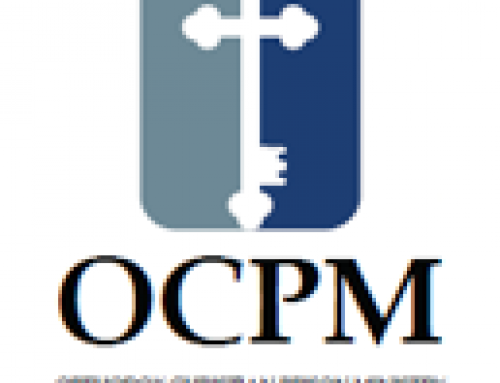This post was originally published on this site
Each household has its own set of routine chores that needs to get done. Vacuuming, sweeping, making the beds, doing the laundry, and so on. However, many families will set aside a time for a deeper and more thorough cleaning of the home. Spring cleaning. Spring cleaning is a time to undertake the chores that we don’t make time for on a day-to-day basis.
Great and Holy Lent is the Spring cleaning of our interior lives.
In its eternal wisdom, the Church calendar gives us a yearly preparatory time to take a richer and more holistic examination of the entire universe that is within us.
Each of us has wounds that stretch down deep inside of us; painful experiences, insecurities, fears, jealousies, and many other things that keep us from the eternal Joy of God’s Kingdom. These things can debilitate us, rendering us unable to be as joyful, as loving, and as compassionate as the Lord calls us to be. We make poor decisions, we find it harder to love those that hate us, we stress out and have anxiety, and we miss out on the glory of the Kingdom.

Image from Eikonografos. Used with permission.
St. Andrew of Crete puts it better than anyone:
I fell beneath the weight of the passions and the corruption of my flesh, and from that moment has the enemy had power over me. Instead of seeking poverty of spirit, I prefer a life of greed and self-gratification. Therefore, O Savior, a heavy weight hangs from my neck.
And this is where it gets really good…
I persist in caring only for my outer garment, while neglecting the temple within me, one made in the image of God.
How much time do we spend worrying about the external world? How much do we care about nurturing social images and external appearances? Unfortunately, our obsession, and I daresay addiction to these things, never strikes us as being abnormal because all around us people are doing the exact same thing.
While we keep busy trying to manipulate everything going on around us, and spend so much energy on our “outer garments”, we completely neglect the temple made in God’s image, that is divinely placed within us.
“The Kingdom of God is within,” the Lord tells us in Luke 17:21. Ask almost any Christian what the goal of the Christian life is, and they will almost certainly say, “heaven.” If Christ, our Lord and our God, says that the Kingdom is within us, why don’t we go there?
We are scared.
We keep our headphones plugged into our ears, we spend hours mindlessly scrolling through pictures and videos of other peoples lives, and we avoid our inner life at all costs because we are uncomfortable with what goes on inside of us. There are thoughts we don’t understand, feelings we cannot articulate, and an entire universe that we do not know how to navigate.
When those things are brought to the surface, we mistakenly think that our problems are outside of us. We blame other people and lash out at them, we spread gossip, and we try to change everything outside of us without ever considering that maybe the problem lies within.
Lent is our time to reorient ourselves and to remember that there is quite possibly more work to be done inside of us than there is to be done outside of us. Maybe a better way to say this would be say that without the internal work of Lent, our external work will be meaningless. St. Paul says it like this:
If I speak in the tongues of men and of angels, but have not love, I am a noisy gong or a clanging cymbal. And if I have prophetic powers, and understand all mysteries and all knowledge, and if I have all faith, so as to remove mountains, but have not love, I am nothing. –1 Cor 13:1-2
Without the internal work of Lent, we will be unable to love perfectly. If we are unable to love perfectly, then nothing else matters. So we must dig deep, and begin the journey within.
How do we do this? 2,000 years worth of spiritual literature covers this topic. Some of my personal favorites are The Kingdom Within by Metropolitan Kallistos Ware, The Roots of Christian Mysticism by Olivier Clement, and Into The Silent Land by Martin Laird. Read up!
Also, making time for silent prayer and reflection is an integral part of our spiritual practice. St. Basil the Great calls silence “the beginning of the purification of the soul.” Turn off the TV, close Snapchat and Instagram, and simply take time to be still. The Psalms tell us to “be still, and know that I am God.”
Just as a family takes the time to clean their home more thoroughly, we as Orthodox Christians take Lent as a time to be more intentional in our spiritual practice, so that we might find deeper healing for our infirmities.
May this Lent be to our spiritual edification and enlightenment. May we answer the Church’s call to dig deeper within ourselves. May we seek the everlasting Kingdom of God within ourselves.
 Mark Ghannam is a Junior at the University of Michigan – Ann Arbor pursing a degree in economics, and serves as the Vice-President and Head of Clergy Relations for his OCF chapter. In his free time, Mark enjoys reading, rock climbing, and long walks on the beach while discussing Liturgical theology.
Mark Ghannam is a Junior at the University of Michigan – Ann Arbor pursing a degree in economics, and serves as the Vice-President and Head of Clergy Relations for his OCF chapter. In his free time, Mark enjoys reading, rock climbing, and long walks on the beach while discussing Liturgical theology.



